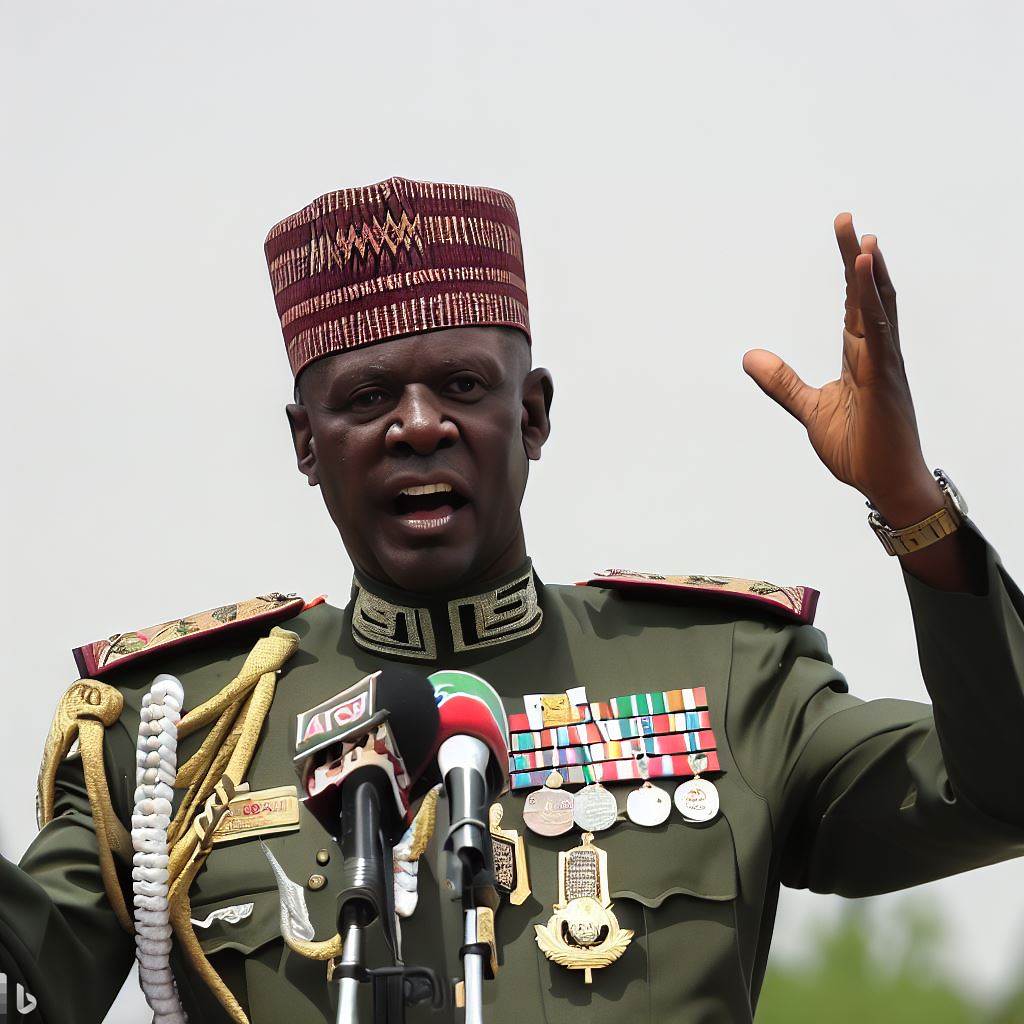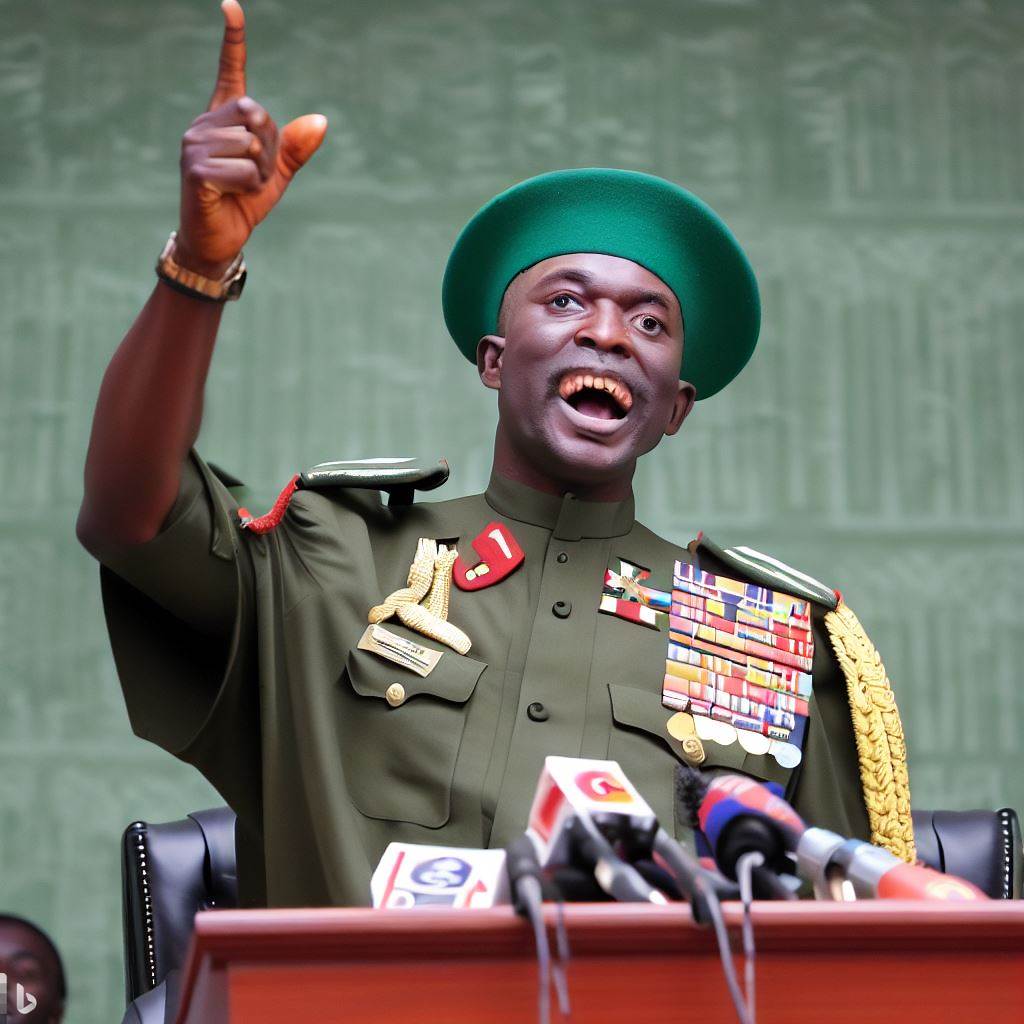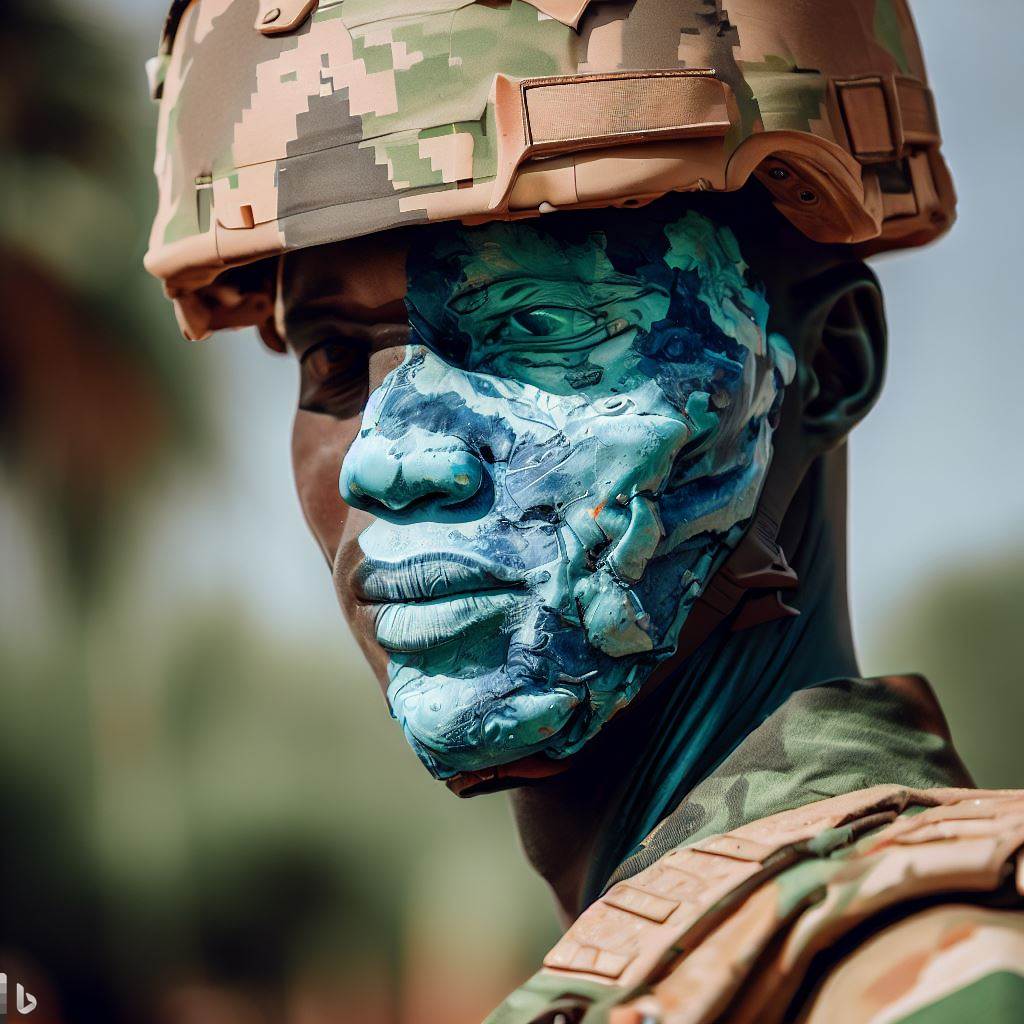Introduction
Nigeria has had a long history of military rule that has greatly influenced its politics. From 1966 until 1999, the military had directly or indirectly controlled the country’s political affairs.
Military coup d’etats were common during this period, with each junta imposing its own policies and governing style.
The military ruled with an iron fist, suppressing civil liberties and silencing the opposition. It wasn’t until the return of democracy in 1999 that Nigeria became a civilian-led government.
Despite the change in government, the military still wields considerable influence on Nigeria’s political landscape.
The Nigerian military remains a powerful institution with deep roots in the country’s politics. It is often involved in political decision-making and plays a vital role in maintaining law and order.
The military’s significant involvement in Nigeria’s politics has not been without consequences. Political instability, corruption, and human rights abuses were common during the military rule.
The military’s influence on politics has also hindered the country’s economic growth and development.
In essence, the military’s influence on Nigerian politics has been significant, and it is important to understand this influence to develop effective and democratic governance.
Read: Career Opportunities in the Nigerian Military Profession
Background of Military Rule in Nigeria
Nigeria has a long history of military coups that have drastically shaped its political system. The country gained independence in 1960 and experienced its first military coup in 1966, just six years later.
The coups continued in 1975, 1983 and 1985, and had a significant impact on the country’s political stability and socio-economic development.
One of the major impacts of the military coups was the destruction of democratic institutions and the consolidation of power in the hands of the military over decades.
The coups disrupted the nascent democratic process in Nigeria and set the country on a trajectory of political instability, ethnic and religious tensions, as well as economic underdevelopment.
The military regimes were characterized by corruption, human rights violations, and over-centralization of power. Many Nigerians were subjected to arbitrary arrests, detention, torture, and other forms of oppression by the military junta.
Analyze the Military’s Role in Shaping the Political System
The military’s role in shaping Nigeria’s political system has been significant and controversial. The coups and the subsequent military regimes entrenched the culture of authoritarianism, which was characterized by a lack of political freedom, rule of law, and accountability.
The military regimes undermined the separation of powers, subordinated the judiciary, and weakened the legislature. The military rulers also embarked on a policy of divide-and-rule, exploiting ethnic and religious fault lines to maintain their grip on power.
The intervention of military in politics was also fueled by economic interests, as they used their control of the country’s vast natural resources, especially oil, to enrich themselves and their cronies.
Furthermore, the military’s interventions in politics contributed to the erosion of trust in democratic institutions and the lack of faith in government by the Nigerian people, which persists till today.
The military’s influence on Nigerian politics has been profound and negative. Military coups and subsequent regimes undermined democracy, undermined rule of law, and stifled socio-economic development.
It is essential for Nigeria to put its past behind and strengthen democratic institutions that promote good governance, rule of law, and political pluralism. A strong democracy is vital for the country’s socio-economic development, political stability, and the prosperity of its citizens.
Read: Nigerian Government and Military: A Comparative Study
Military intervention in Nigerian politics
Military interventions in Nigerian politics have been a recurring issue since the country gained independence from Britain in 1960.
The reasons behind military intervention in Nigerian politics are multifaceted and complex. The following is an analysis of the impact of military intervention on democracy and political stability in Nigeria.
Reasons behind military intervention in Nigerian politics
- Corruption: Corruption has been a major issue in Nigerian politics. Military interventions in Nigerian politics have often been justified as necessary to curb corruption and enforce accountability.
- Ethnicity: In Nigeria, ethnicity plays a crucial role in political and social life. Ethnic tensions have frequently led to military interventions, as different ethnic groups have fought for control over the central government.
- Instability: Military interventions have also been launched to restore stability and order to a country that is experiencing political and social unrest. For example, in 1966, the army intervened in response to the violence that erupted after the election of a northern Muslim as prime minister.
- Economic interests: Military interventions have been triggered by economic interests, such as control over the oil-rich Niger Delta region. This has led to the military taking over the government to ensure their economic interests are protected.
Impact of military intervention on democracy and political stability
- Loss of democratic institutions: Military interventions have led to a loss of democratic institutions, as the military suspends the constitution, dismisses elected officials and assumes control of the government.
- Repression: After military intervention, repression often follows, with civil liberties curtailed, the media suppressed and opposition politicians detained, tortured or killed. For instance, under General Sani Abacha’s regime, human rights abuses, corruption, and extrajudicial killings were commonplace.
- Economic instability: Military rule has also led to economic instability as economic policies made by the military don’t often benefit everyone, resulting in inflation, declining growth and lack of foreign investment.
- Social instability: Military interventions have caused social instability due to arbitrary arrests, extra-judicial killings, and detention camps which led to political uprising and resistance in the country.
Summarily, military intervention in Nigerian politics has had a significant impact on the country’s democracy and political stability.
The reasons behind military intervention are often linked to issues of corruption, ethnicity, instability and economic interests.
The impact of military intervention has been widely negative, with the loss of democratic institutions, repression, and economic and social instability.
Nigeria’s progress in consolidating democracy and stability in the past decade may, however, be attributed to the absence of military rule.
The country must continue to strive to create and maintain democratic institutions that can withstand the pressures imposed by a dysfunctional political system.
Read: Top 10 Highest Paying Professions in Nigeria: 2023 Edition
Economic Impact of Military Rule
- The military’s economic policies often focused on consolidating power rather than developing the Nigerian economy.
- Military rule promoted corruption among the ruling elite and bureaucratic officials, leading to the redirection of public resources towards private interests.
- This corruption and mismanagement led to the decline of public institutions like education and healthcare, ultimately harming economic growth.
- The military’s policies of centralizing power created a system where a few individuals controlled economic resources, slowing economic development.
- The lack of transparency in military regimes enabled individuals to make illicit profits through illegal trade and economic activities, further hindering economic growth.
- Widespread human rights abuses during military rule led to international isolation and limited foreign investment, worsening the country’s economic situation.
- The excessive borrowing and debt accumulation of military governments placed Nigeria in severe economic distress, leading to economic crisis and debt burden.
- The military also often interfered with the private sector, leading to decreased investor confidence and job opportunities in Nigeria.
- Military rule stifled innovation and entrepreneurship, and investors were often discouraged by the unpredictable policies of military governments.
- Military rule often led to a lack of fiscal discipline, as the ruling elite frequently used public resources for personal gain, rather than investing the resources in economic development.
Military rule devastated Nigeria’s economy, prioritizing power consolidation and elite enrichment over economic growth.
Corruption and mismanagement suppressed innovation, enabling a few to monopolize resources.
Opaque dealings bred illicit profits and rising debt, escalating economic decay. Nigeria must escape military rule, fight corruption, and advance economic development to foster a sustainable, thriving economy.
Read: Influential Leaders of the Nigerian Government: A Review

Democracy and military rule in Nigeria
The military heavily influenced Nigeria’s democracy since gaining independence in 1960. They seized power in 1966, ruling until the establishment of a democratic government in 1999.
The impact of military rule on democracy in Nigeria:
- Military rule resulted in the suppression of civil liberties and freedoms, including freedom of speech and association. The military government banned political parties and imprisoned pro-democracy activists.
- The military also perpetuated a culture of corruption and human rights abuses, including torture and extrajudicial killings. This fostered a lack of trust and legitimacy in government, undermining the development of a healthy democratic society.
- Military rule hindered Nigeria’s democracy, but it catalyzed civil society and human rights advocacy. Fighting dictatorship created an informed electorate, engaged media, and a desire for transparent government.
The challenges facing Nigerian democracy and efforts to promote democratic governance:
- Corruption remains a major challenge to democratic governance in Nigeria. It has also contributed to an unequal distribution of resources and wealth, undermining the development of the country.
- Elections in Nigeria are still plagued by violence, vote buying, and irregularities that undermine the credibility and legitimacy of the electoral process.
- The role of the military in Nigerian politics remains a concern as well. The military has historically been involved in coups and has often been a political force behind the scenes, manipulating electoral processes and influencing the political landscape.
- However, there have been efforts to strengthen democratic governance in Nigeria. Civil society organizations and human rights advocates continue to pressure the government to respect the rule of law and protect citizens’ rights. Several electoral reforms have been enacted to improve the credibility and legitimacy of elections.
- The media has also played a critical role in exposing corruption and holding elected officials accountable, promoting transparency and accountability in government.
- The international community has also been supportive of democratic governance in Nigeria, providing resources and technical assistance, and promoting the importance of democratic development through multilateral institutions such as UNDP, EU, and AU.
The long period of military rule and political corruption hindered Nigeria’s democratic institution-building. Electoral violence and military involvement persisted.
Civil society, media, and international support play essential roles in promoting democratic governance, exposing corruption, and holding officials accountable.
Nigeria makes progress towards a more democratic society that prioritizes accountability, transparency, and human rights.
Read: The Role of Women in the Nigerian Military
Conclusion
The military influence on Nigerian politics has had a profound impact on the country’s socio-political development.
The coups and military dictatorships have disrupted the democratic culture, hindered political stability, and promoted corruption.
The return to democracy in 1999 marked a significant milestone in Nigeria’s political history. However, the military still wields considerable power, and their interference in politics remains a concern.
Despite these challenges, there are prospects for democracy and political stability in Nigeria.
Nigeria can overcome political challenges and achieve a stable democratic system with commitment from leaders, citizens, and external support.
Democracy’s path demands collective efforts to attain political stability, good governance, and combat corruption. The military must focus on defending the nation, not meddling in politics.
Civil society must hold leaders accountable, demanding transparency and accountability in governance.
Nigeria’s democracy has progressed, and with the right approach, the country can become a beacon of democracy in Africa.




